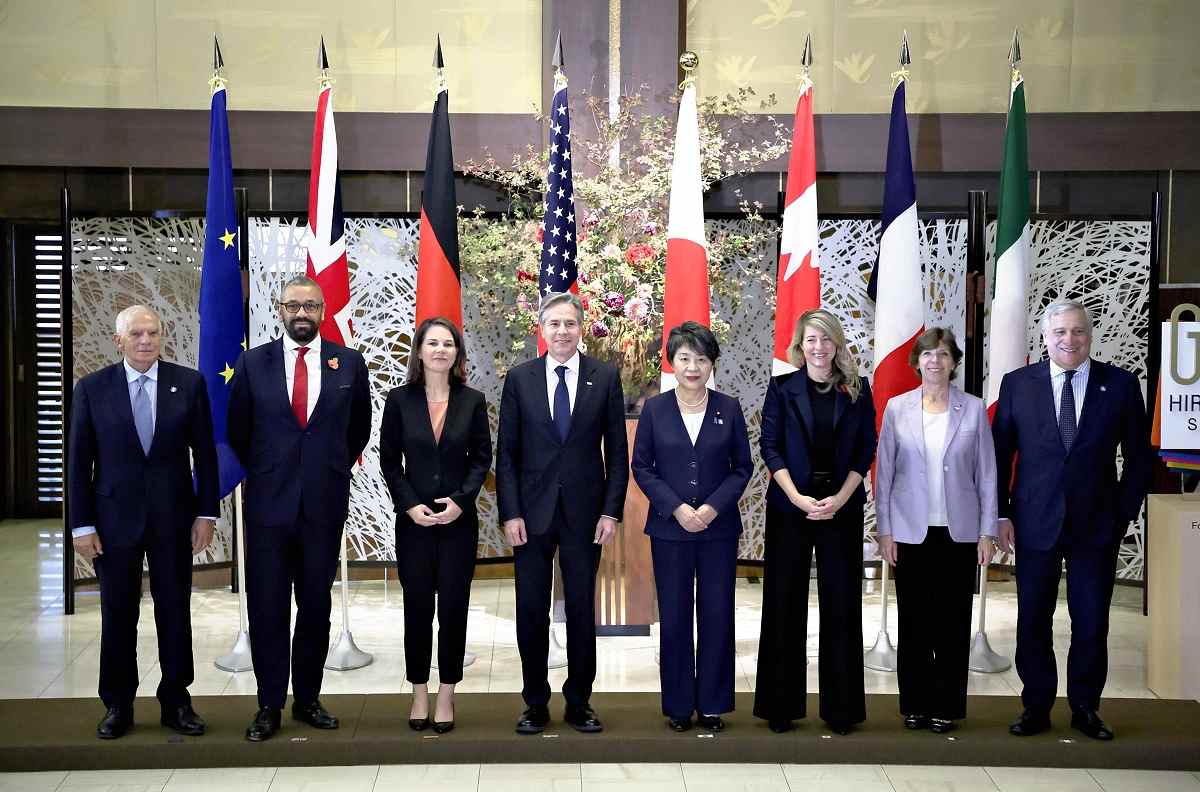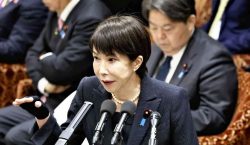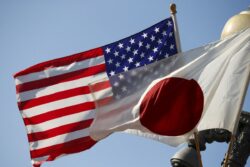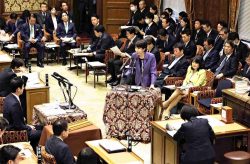G7 Struggles to Deal with Mideast, Russia, China; Japan Reiterates Importance of Indo-Pacific
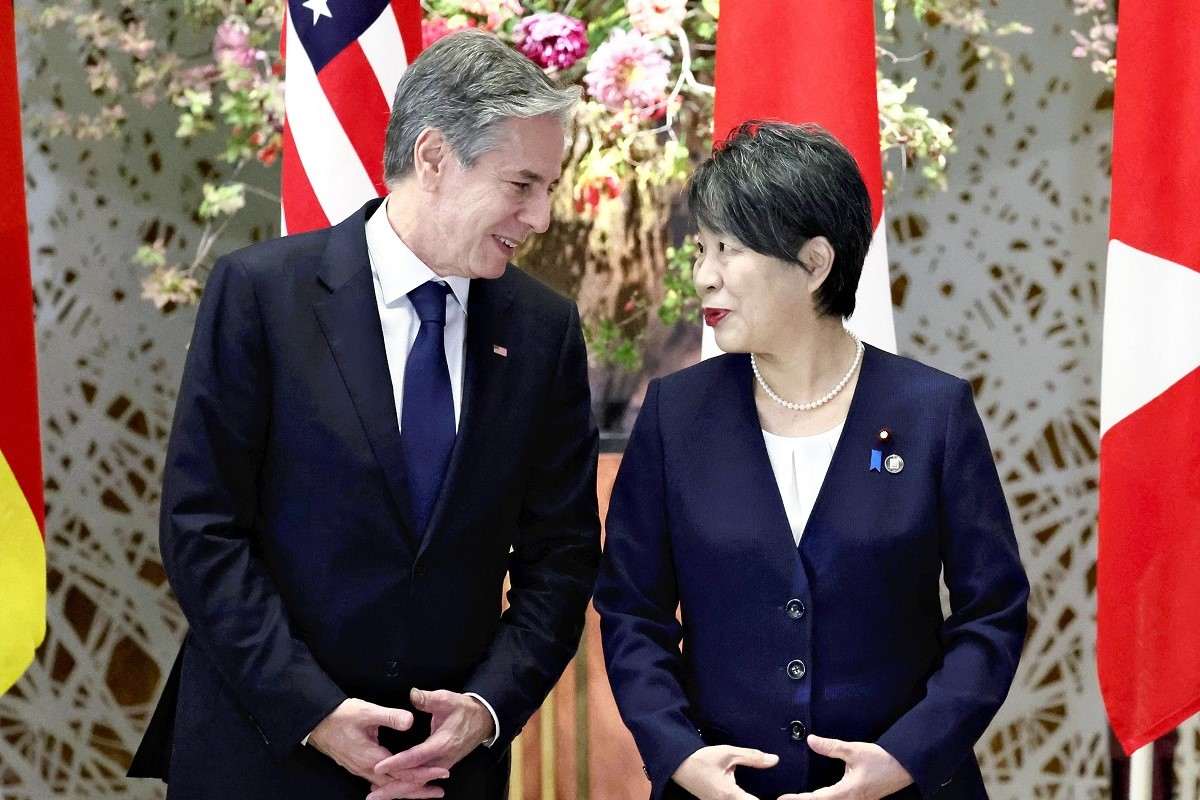
Foreign Minister Yoko Kamikawa, right, and U.S. Secretary of State Antony Blinken pose for a photo at a G7 foreign ministers’ meeting in Minato Ward, Tokyo, on Wednesday.
2:00 JST, November 10, 2023
The Group of Seven is under pressure to respond to three major issues: the tense situation in the Middle East, China’s increasingly hegemonic moves, and Russia’s ongoing aggression in Ukraine.
During an Indo-Pacific-focused session held Wednesday in Tokyo, Japanese Foreign Minister Yoko Kamikawa raised the issue of China’s ongoing maritime expansion in the East and South China Seas, calling for putting priority on dialogue with China. “It’s important for the G7 to openly engage with China and express our concerns directly,” she said.
As the sole Asian country within the G7, Japan has put top priority on discussions relating to the Indo-Pacific, including China.
Japanese Prime Minister Fumio Kishida has repeatedly said: “Today’s Ukraine is tomorrow’s East Asia.” Kishida has also drawn up a strategy to strengthen deterrence against China by stressing cooperation over Russia.
If the United States and Europe concentrate on events in the Middle East and Ukraine, a power vacuum could emerge in Asia, triggering concerns that Beijing could take aggressive actions.
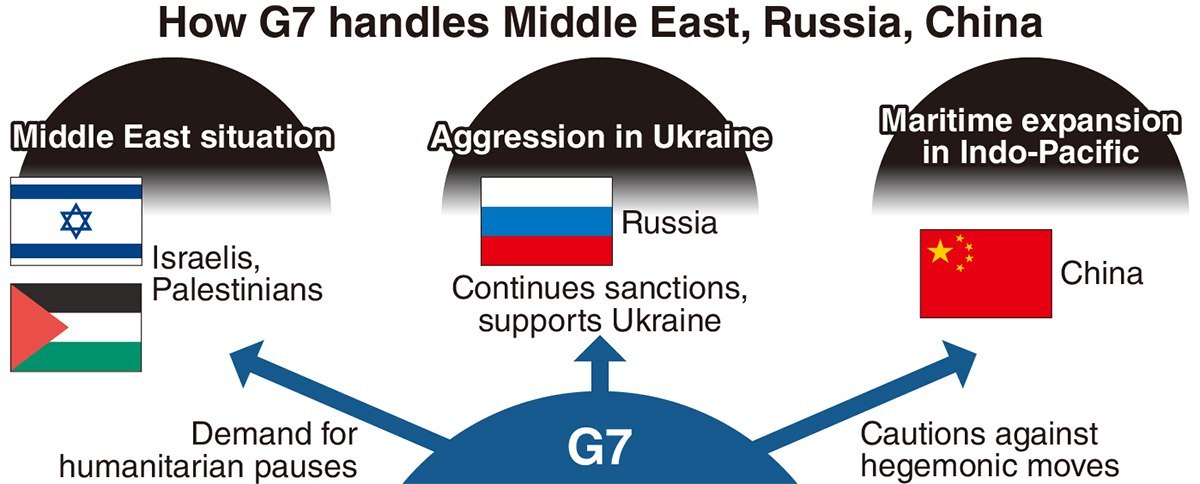
Some members of the Japanese government had expressed concern that U.S. Secretary of State Antony Blinken — who frequently travels between Middle Eastern countries with an eye on preventing the escalation of violence in the area — might not visit Japan.
However, Blinken attended the G7 meeting in Tokyo in person.
“The fact that G7 members met face-to-face in Japan sends a message that Asia — which is currently facing threats from China and North Korea — has not been forgotten,” a senior foreign ministry official said.
The G7 on Wednesday held an 80-minute session on Ukraine, inviting Ukrainian Foreign Minister Dmytro Kuleba to attend online an outreach session in the afternoon. “Despite the increased tension in the Middle East, the G7 will remain united in supporting Ukraine,” Kamikawa said.
However, if the battle in Gaza expands into neighboring areas, it is inevitable that U.S. engagement with China and Russia will diminish. “It’s imperative to achieve stability in the Middle East for the sake of Japan’s security,” a senior Japanese government official said.
Top Articles in Politics
-

Japan PM Takaichi’s Cabinet Resigns en Masse
-

Sanae Takaichi Elected Prime Minister of Japan; Keeps All Cabinet Appointees from Previous Term
-

Japan’s Govt to Submit Road Map for Growth Strategy in March, PM Takaichi to Announce in Upcoming Policy Speech
-

LDP Wins Historic Landslide Victory
-

LDP Wins Landslide Victory, Secures Single-party Majority; Ruling Coalition with JIP Poised to Secure Over 300 seats (UPDATE 1)
JN ACCESS RANKING
-

Producer Behind Pop Group XG Arrested for Cocaine Possession
-

Japan PM Takaichi’s Cabinet Resigns en Masse
-

Man Infected with Measles Reportedly Dined at Restaurant in Tokyo Station
-

Israeli Ambassador to Japan Speaks about Japan’s Role in the Reconstruction of Gaza
-

Videos Plagiarized, Reposted with False Subtitles Claiming ‘Ryukyu Belongs to China’; Anti-China False Information Also Posted in Japan
